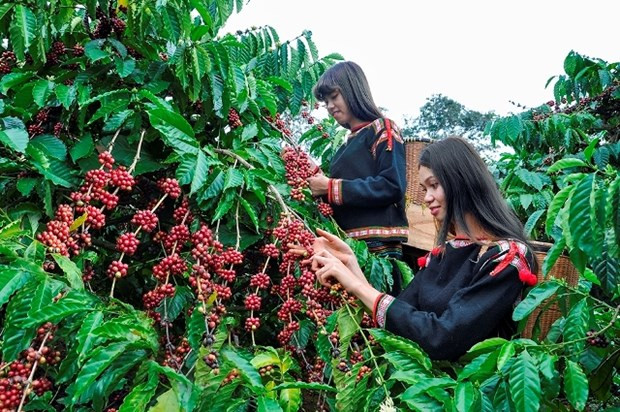
The law, passed in late June and will come into effect by the end of 2024, requires companies selling commodities into the EU to produce a due diligence statement and verifiable data proving their goods were not grown on land deforested after 2020.
The new law covers cattle, cocoa, coffee, beef, soy, palm, timber, and their derivatives such as chocolate, tire, and furniture.
The EU is the largest coffee importer from Vietnam. In 2022, Vietnam exported to the EU 689,049 tonnes, worth nearly 1.5 billion USD, up 25.8% in volume and 45.4% in value compared to 2021.
Being impacted by the new EU law, Vietnamese coffee exporters now have to ensure that the coffee they export is not linked to deforestation.
According to the Vietnam Coffee and Cocoa Association, coffee farmers in Vietnam face a major difficulty in ensuring traceability.
They usually grow coffee in small areas which are mostly about 0.5ha or less.
It’s not easy for them to prove the origin of their farming land or afford costs to improve the traceability for their coffee.
However, according to the association, to well-invested businesses, satisfying green and sustainable standards can bring them a great opportunity to enhance their products’ value and brands.
According to experts, the application of digital technology is crucial to meeting the regulation on non-deforestation products./. VNA